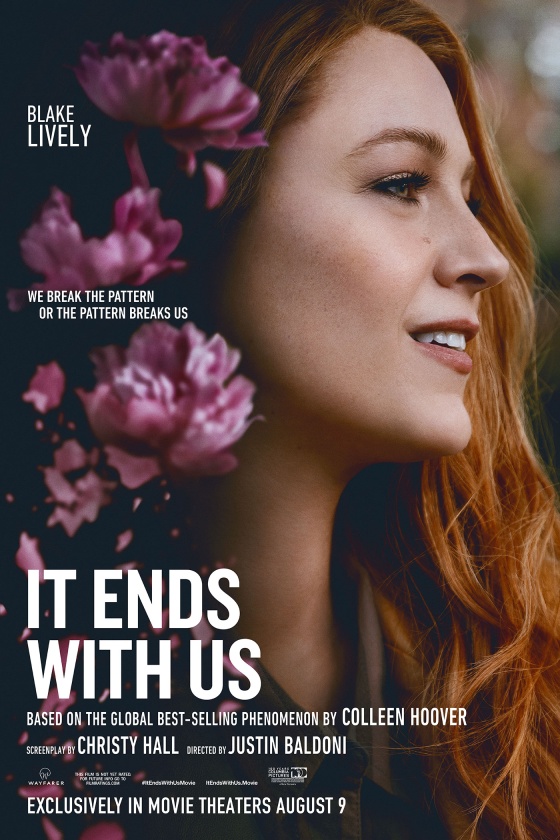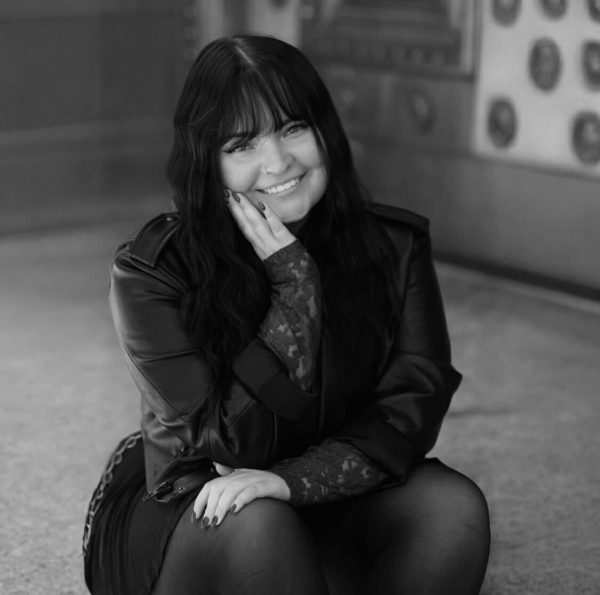Imagine this — it is the summer of 2020, at the height of the pandemic, and you are scrolling through TikTok when you come across a video promoting a novel sporting a pink cover that is adorned with shattered flowers. The novel’s title reads, “It Ends With Us.”
Colleen Hoover re-ignited the love of reading for so many people during quarantine with this little novel, and now here we are, in 2024, and it has been adapted into a blockbuster film. The story creates a spotlight on the dangers of domestic violence as it follows a young woman, ironically named Lily Bloom, (Blake Lively) who carries her dream of opening a flower shop to fruition.
Blooms and Bruises
Lily finds herself in Boston, ready to take on the task, when she has a chance encounter with a neurosurgeon; the charismatic and devastatingly handsome Ryle Kincaid (Justin Baldoni). The spark from between the two might as well be a firework as there is instant, undeniable chemistry. However, under a warning from Ryle’s sister Allysa (Jenny Slate), Lily gives him the cold shoulder, at least at first.
But all cold shoulders eventually thaw, and Lily’s is no different. She begins a slow fall to the depths of love as her and Ryle explore their connection and until this point, “It Ends With Us” seems like your everyday rom-com release with a few romantic scenes and a little bit of spice. However, the many readers that experienced Lily and Ryle’s story for the first time in 2020, know that this love story is covered in bruises.
When Lily’s first love, Atlas Corrigan, (Brandon Sklenar) makes his way back into her life, all hell breaks loose. Ryle’s jealous tendencies and anger issues take hold and he channels it into fits of physical violence towards Lily. The novel captures the full capacity of the abuse that Lily endured, however, the film seems to fall short when it comes to accurately portraying the severity of a relationship shackled by violence.
Better Than the Book?
The film, while capturing the general gist of the abusive relationship, failed to highlight just how extreme the abuse was and the extravagant lengths to which Ryle would go to cover his tracks. There were missed opportunities in the film’s execution as the topic of domestic violence is so important to discuss, and the complexity of it did not come across as clearly as it does in the novel. In fact, it seemed as though Baldoni’s character was supposed to extract empathy from the audience as opposed to disdain, which inherently contradicts the film’s focus on the danger of domestic abuse.
The film pays homage to the connection between Lily and Atlas as well and maintains his white knight persona. When Lily feels defeated in her relationship with Ryle, she seeks refuge in Atlas. She instinctively turns to him as a safe haven, which he freely provides.
As the director, Baldoni includes several flashbacks starring young actors that portrayed Lily and Atlas’ younger selves when they first met, which are littered amongst the current timeline. This allows the audience to see where their connection stems from and why he cares so deeply for her. It was one of the best cinematic choices made to coincide with the formatting of Hoover’s novel.
Overall, the film did what it was supposed to do. It took one of the best-selling young adult novels of the decade that the world fell in love with, and put faces to the names. While there were some key parts of the novel left out, and some missed opportunities in terms of character depth and execution, it is still a worthwhile watch. Although, in this case, as in most others, the book is absolutely better than the movie.
If you or someone you know is a victim of domestic violence, call the number 800-799-7233 to talk to someone who can help. You are not alone.



